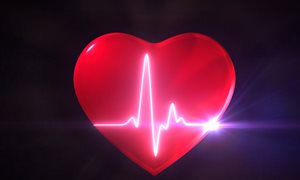26 August 2019
The study was a huge success as over 350 participants were randomized and learned to perform CPR. It was featured on RTL news and in several news papers. Results are expected in the coming months. For more information: www.cprsaveslives.nl

The study was a huge success as over 350 participants were randomized and learned to perform CPR. It was featured on RTL news and in several news papers. Results are expected in the coming months. For more information: www.cprsaveslives.nl
-
Want to know more about these subjects? Click on the buttons below for more news.
Related news items

AI helps the defibrillator think
4 October 2021 In the future, the AED and the defibrillator will be able to do more than they do today. Now the devices can only give patients who need to be resuscitated a shock, but in time it will be possible, with the help of artificial intelligence, to say more about the condition of the patient. read more
Experts call for urgent action to reduce global burden of cardiovascular disease in women by 2030
17 May 2021 There is an urgent need to address this, states the international Lancet 'Women and Cardiovascular Disease' Commission read more
Water as a new tool for cardiac screening for chest pain
2 March 2021 Patients with chest pain not caused by a narrowing of the coronary arteries often do not know the cause of their symptoms. Scientists at the Radboudumc have successfully used a new technique to investigate other causes in the coronary arteries of the heart. read more
Pregnancy complications and early menopause affect cardiovascular disease in women
9 February 2021 A number of specific conditions in women are important in their risk of cardiovascular disease. These include high blood pressure during pregnancy, gestational diabetes and early menopause. read more
Cardiac function in relation to myocardial injury in hospitalised patients with COVID-19
16 July 2020 In Netherlands Heart Journal RIHS researcher Frederik van den Heuvel described that in hospitalized COVID-19 patients, COVID-19 predominantly affects the respiratory system, while cardiac dysfunction occurs less often. read more
